Review: Shakers
Rory O’Dwyer reviews Shakers, stage@leeds’ most recent production.
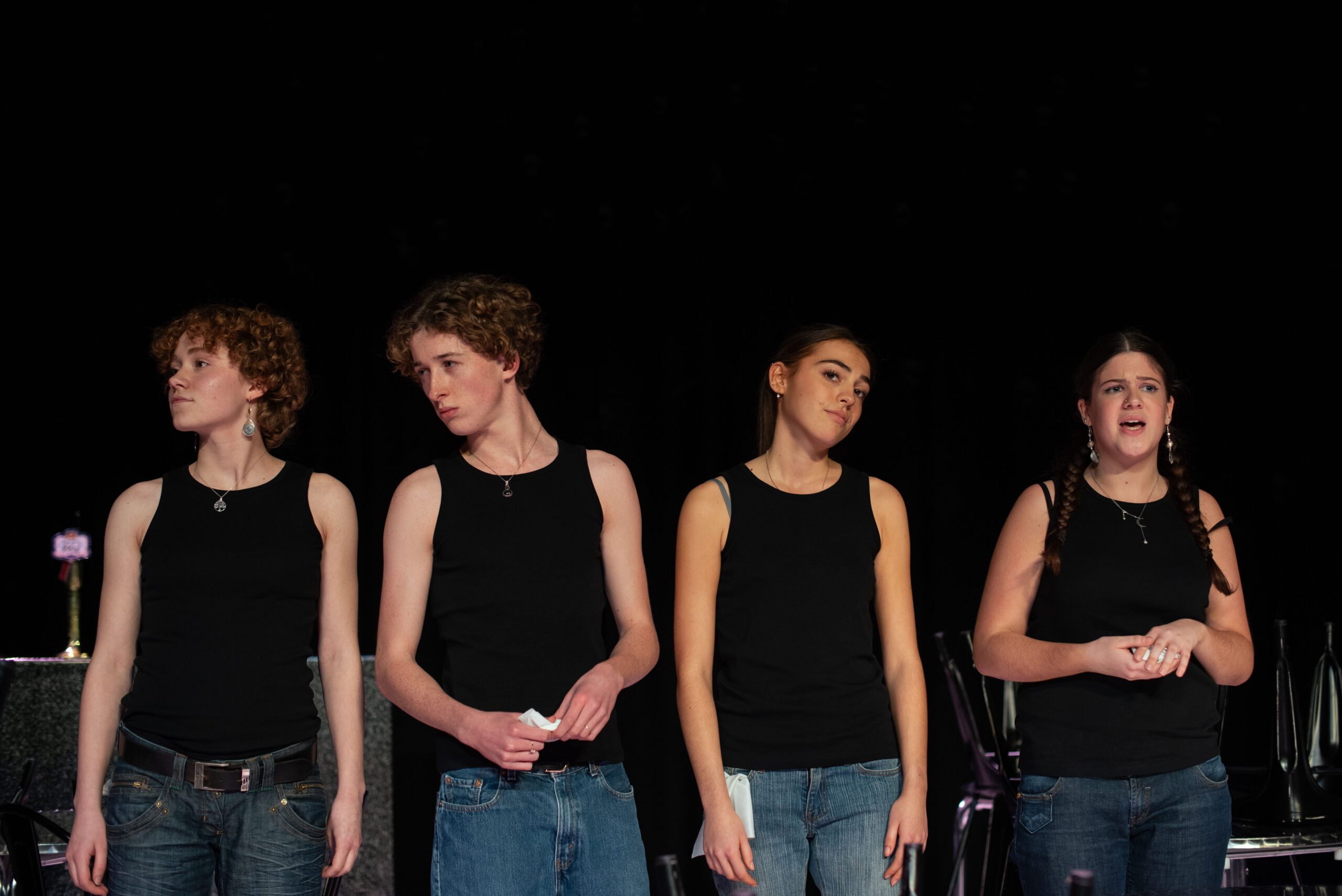
Words by Rory O’Dwyer / Edited by Mia Stapleton
Upon entrance into Stage One in stage@leeds, the radio classics being played and the imaginative interior design, immediately transport the audience into the world of the play, a 2000s late-night bar eponymously called ‘Shakers’. The layout of the space is transformative, involving moody overhead lighting, metal tables, chairs, and a checkered flooring, completed with a shiny bar commanding the stage from the back; I can confidently state that I have never seen Stage One so creatively refashioned to establish the tone of a play. The set, along with the uniform black tank top and blue jean costuming, is simple yet effective in its stylisation. The feeling of being in a bar is only enhanced by the programme having been created to resemble a cocktail menu, and the tables being wiped one by one by the cast members, fully immersed in their roles as bartenders. Before the play even begins, the audience is swept into the scenery by these brief but charming interactions with the cast. However, this is not the last time the play will successfully engage in metatheatrical storytelling.
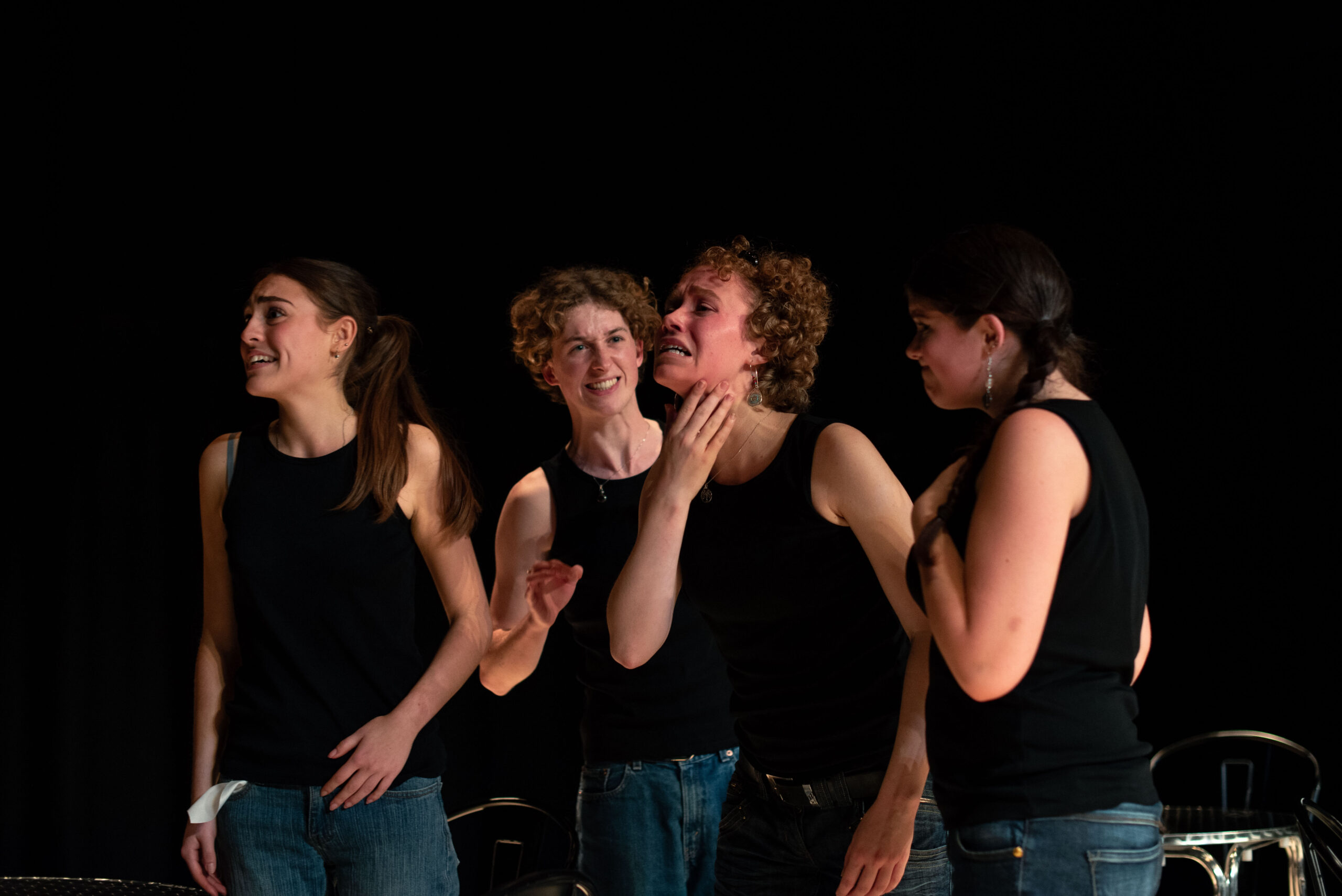
The drama begins as our four cocktail waitresses close shop and chinwag about each of their love lives, which will become a bigger theme as the play progresses. Throughout the play, we are exposed to a variety of different diners and drinkers, most often loud, obnoxious, and satirically melodramatic, whom the waitresses have to handle this very busy night. The shifts in narrative are conveyed via atmospheric lighting and sound changes, which achieve the sense of movement and fluidity needed for such subplots in order to feel distinct and real. Shakers relies on the ability of actors to transform from bartenders into these larger-than-life characters, and back again, within a single beat, through only changes in body language and voice, a challenge all four managed to manoeuvre with ease. Amidst this chaos, though, we also receive touching and earnest monologues from our four central characters, in which they reveal their personal concerns and ambitions.
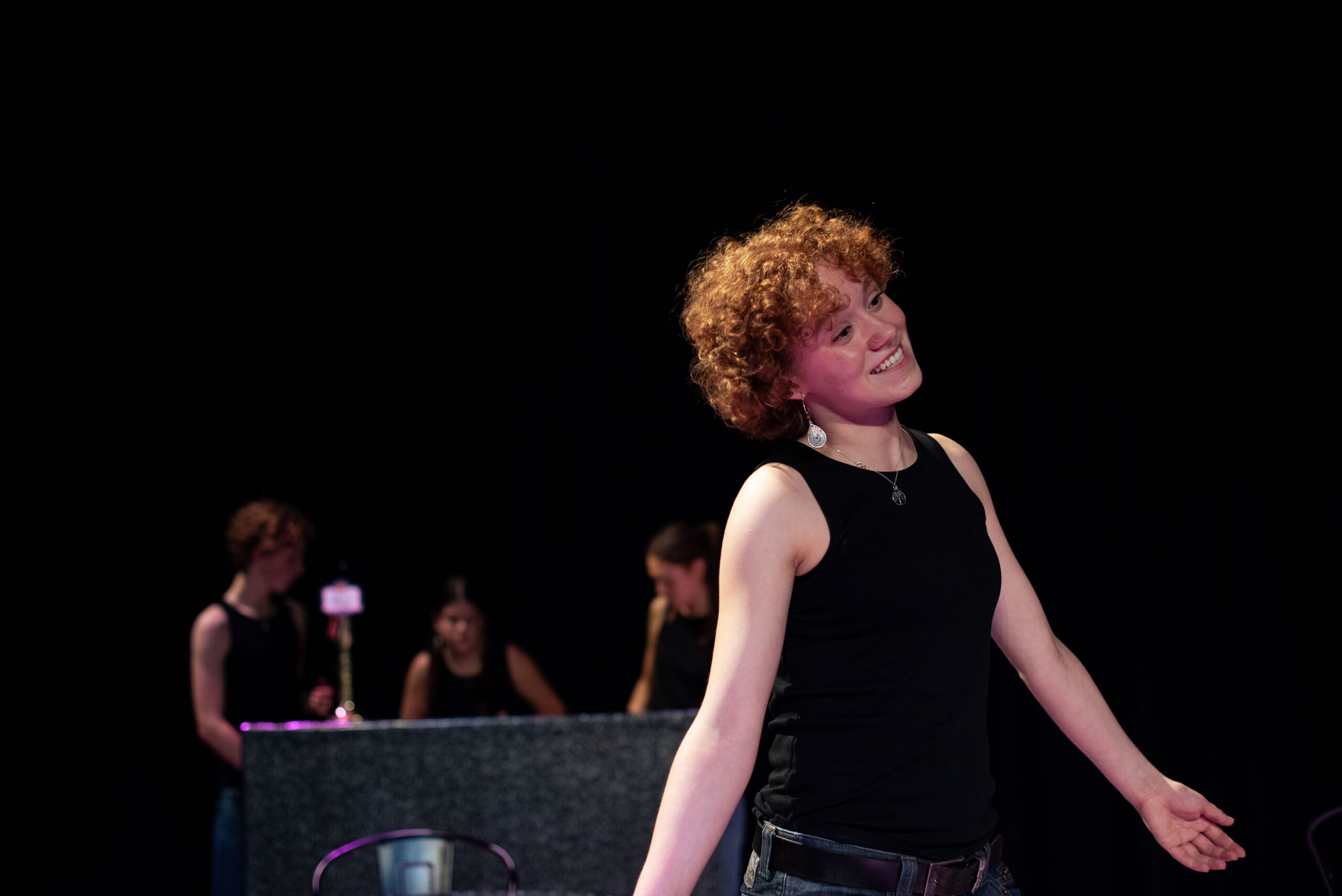
First, we learn about Carol (Evie Gibbon), who is only working at ‘Shakers’ to pay the bills until she makes it big as a photographer in London. A familiar and endearing tale of the struggling young professional that rings true for many aspiring in the performing arts.
We had already heard various snippets of Adele’s (Maisie Stalham) private life, with allusions to Adele’s marriage, and a new mother, but it is not until her tender and direct speech to the audience that we understand the personal struggles of her fresh motherhood. Stalham conveys sincerity, relatability, and vulnerability incredibly well in this role that demands conviction in her hardship, without letting it become one-dimensional or overly sombre.
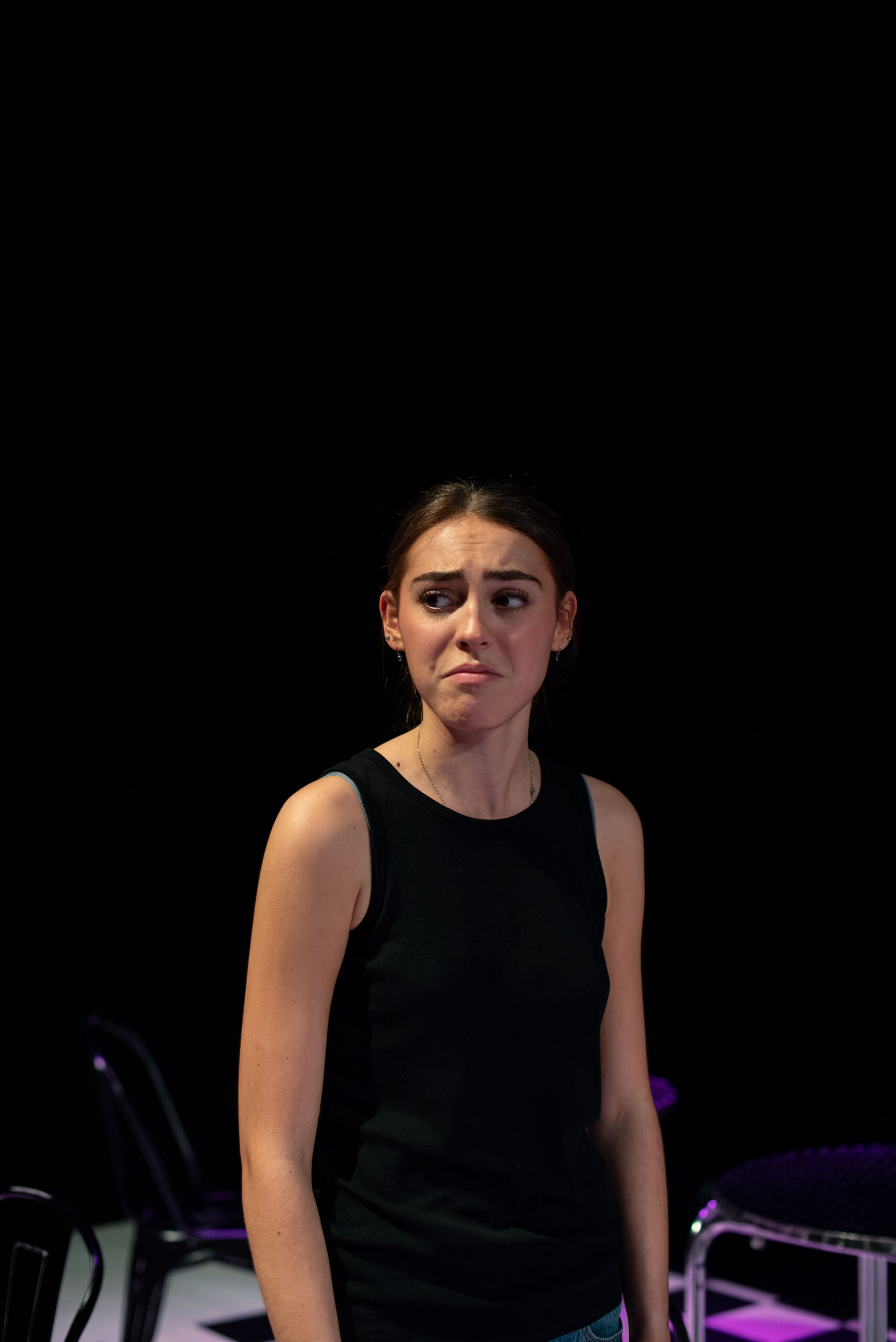
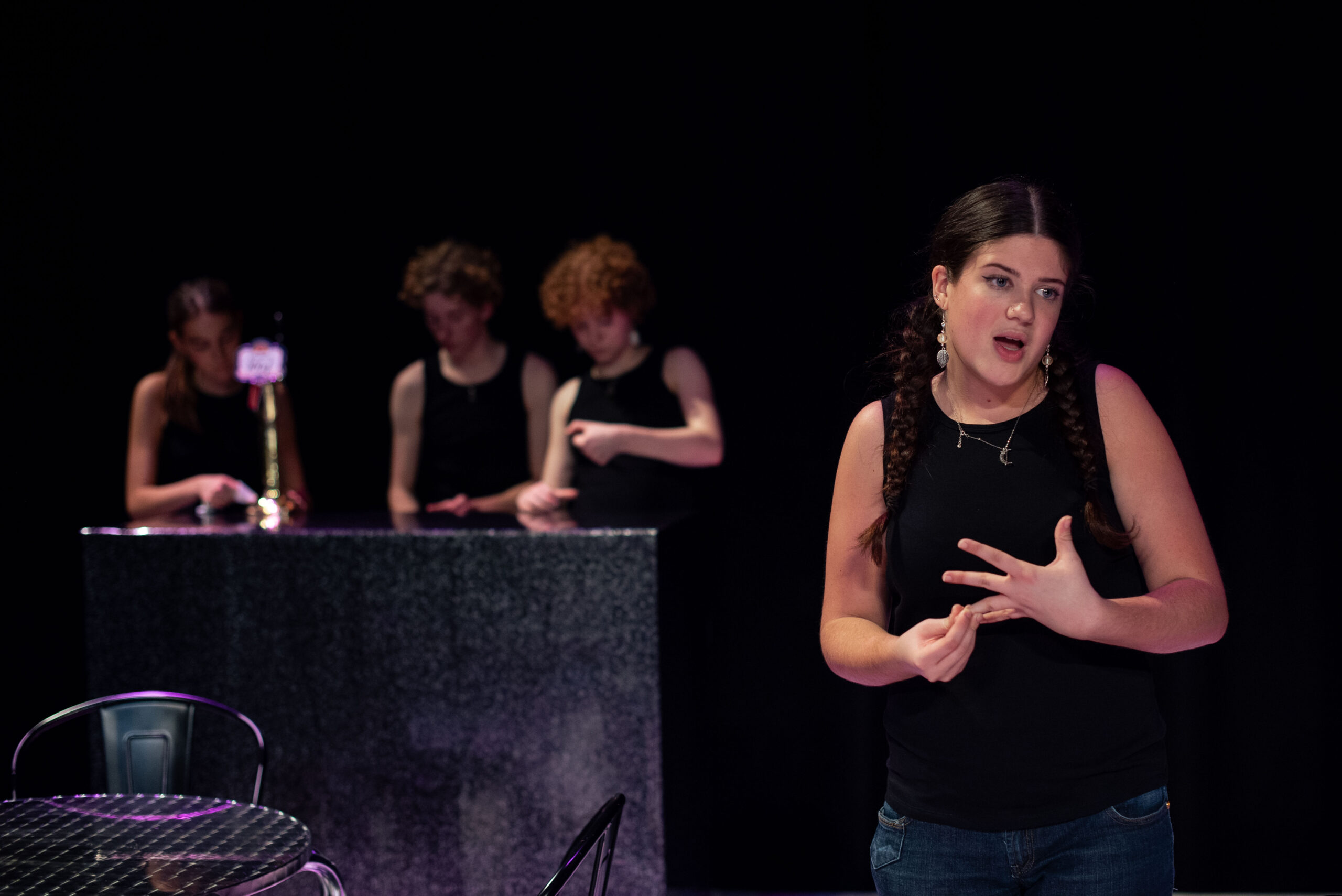
Next, Nikki (Thalia Bartley) opens up about her hopes of becoming a dancer and the self-doubt that she feels is holding her back. She has never spoken explicitly about these artistic ambitions to her co-workers, but she has managed to find a job dancing on a cruise that will allow her to escape this service job that all of them except Mel seem to detest. Despite her best efforts to hide it, similarly aspiring artist, Carol clearly appears jealous about Nikki’s success in finding a way out of this dreadful bar.
Our final moment of personal address from the waitresses is from Mel (Ruairi Spooner), who from early on in the play we had been informed was the more spirited and irreverent of the four. Much to the surprise of the other waitresses, Mel is engaged to a new man that none of them have met. When we finally get an opportunity to see past Mel’s bombastic personality, we are exposed to a sentimental and touching character who has struggled with successive relationships, commitment, and parental marriage struggles. The multilayered accents of this character are confidently achieved by a compelling performance from Spooner.
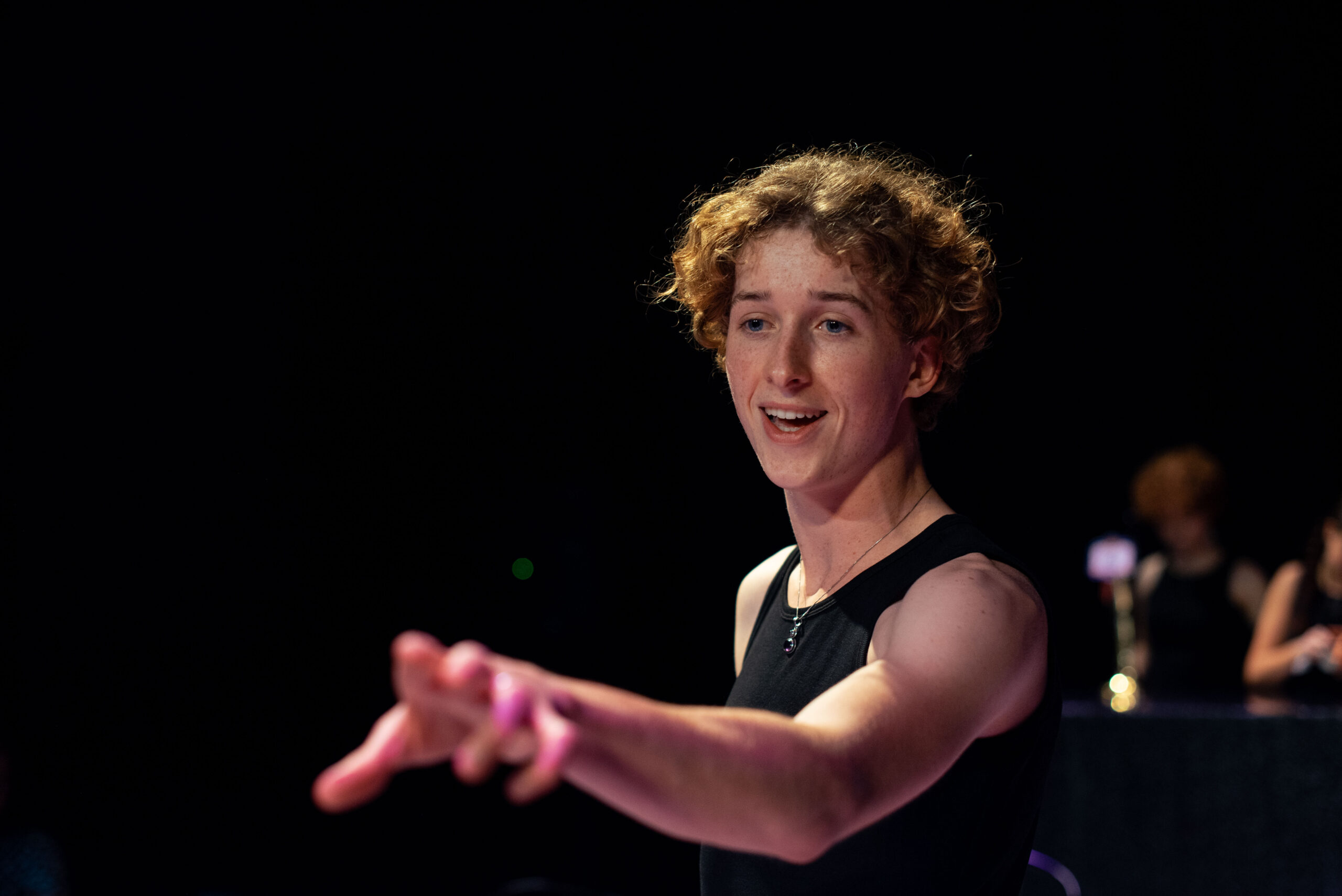
The dialogue of the play is interspliced, with the waitresses breaking out of the immediate narrative to express their grievances with the job; being able to pull off such dynamic storytelling is truly a testimony to the synergy between the actors and director (Jasmine Morgan). The heart of the show, however, is the comedic and cartoonish appearances of different characters, including supermarket workers celebrating a big birthday night out, posh businessmen, and an overly intimate couple. The transitions between these sketch-like scenes are achieved seamlessly and with the tremendous employment of physical comedy. All four actors in the cast manage to switch between roles flawlessly and deliver hilarious moments as these hyperbolic stereotypes, even if some of the characters begin to come across as slightly repetitive with the middle-class cliché jokes.
The production team of Eve Billington, Hannah G-H, and Mia Sage with first-time director Jasmine Morgan at the helm, should certainly be very proud of such an accomplished work of staging and an extremely entertaining 90 minutes of theatre.
(All Image Credits: Abby Swain)
